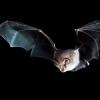Five “organs-on-chips” research experiments are set to take place on the International Space Station.

An initial $6m of US funding has been awarded for the projects which all focus on different areas of human physiology and disease.
The topics covered include neurodegeneration, traumatic injury, cancer, musculoskeletal disease, tissue stem cells and regeneration.
The Center for the Advancement of Science in Space and the National Center for Advancing Translational Sciences (NCATS) announced the grants.
Christopher Austin, NCATS Director, said: “The opportunity to perform tissue chip science on the space station is a remarkable opportunity to understand disease and improve human health.
“Physiological functions in the microgravity of the International Space Station will provide insights that will increase translational effectiveness on earth, including identifying novel targets for drug discovery and development.”




